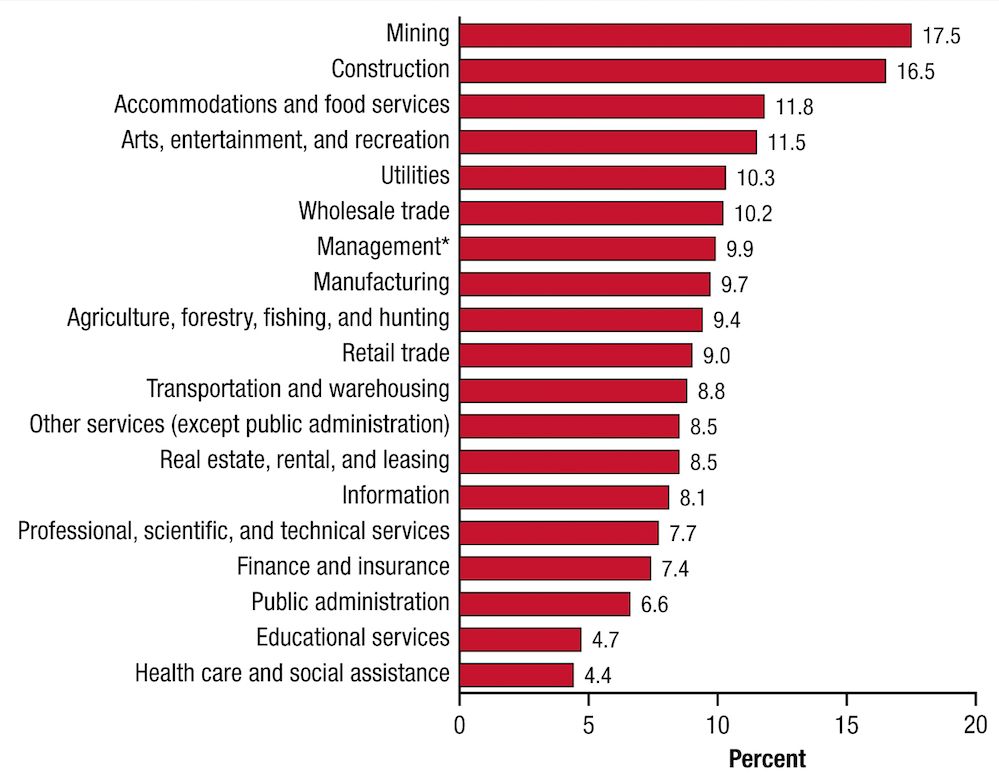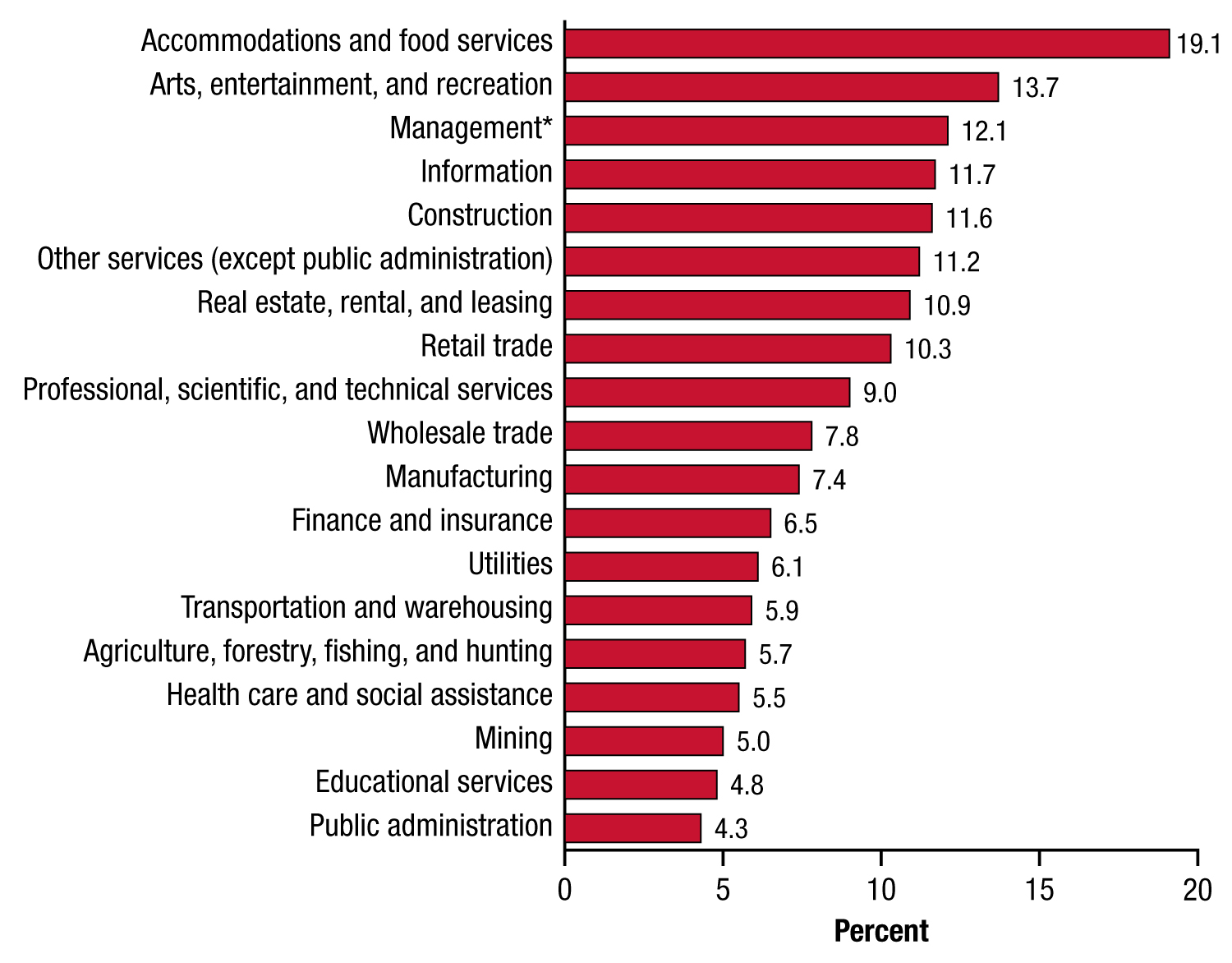Employees of the construction industry ranked second for drinking heavily, and fifth for drug abuse, says a new study by the Substance Abuse and Mental Health Services Administration.
On The Washington Post’s Wonkblog, drug policy reporter Christopher Ingraham writes that drug abuse, including alcohol consumption, costs the U.S. economy billions of dollars in lost productivity annually.
Data show that among the industries with the heaviest drinkers, miners topped the list, with 18% of miners reported “drinking five or more drinks on the same occasion (i.e., at the same time or within a couple of hours of each other) on five or more days in the past 30 days.” Construction workers followed closely at 17%.
Ingraham writes that variation among drug abuse and alcohol consumption across industries does not necessarily have a direct influence with the nature of work. Instead, it has more to do with the types of people who work in them.
“For instance, we know that men drink and do drugs more heavily than women,” he writes. “The researchers write that one reason miners drink so much is that miners tend to be young and male. Construction workers, on the other hand, showed abnormally high heavy drinking rates even after controlling for age and gender.”
The graphs below, by The Substance Abuse and Mental Health Services Administration, show the percentage of drug and alcohol abuse by job.
Percentage of employees who drink heavily:

Percentage of employees who use illicit drugs:

Read more on the latest report on the Substance Abuse and Mental Health Services Administration website.
Related Stories
Office Buildings | Mar 3, 2015
Former DuPont lab to be converted into business incubator near UPenn campus
The new Pennovation Center will provide collaborative and research spaces for educators, scientists, students, and the private sector.
Sponsored | BIM and Information Technology | Mar 3, 2015
The great debate: Is 3D PDF really BIM?
You can pull apart buildings, cut through floors, and view simulated animation for assembly instructions all within a PDF.
Codes and Standards | Mar 2, 2015
Proposed energy standard for data centers, telecom buildings open for public comment
The intent of ASHRAE Standard 90.4P is to create a performance-based approach that would be more flexible and accommodating of innovative change.
Contractors | Mar 2, 2015
Nonresidential construction spending dips in January, still outpaced 2014
Nonresidential construction spending fell 2% in January, which is the largest setback to spending since January 2014, according to the March 2 release from the U.S. Census Bureau.
K-12 Schools | Mar 1, 2015
Are energy management systems too complex for school facility staffs?
When school districts demand the latest and greatest, they need to think about how those choices will impact the district’s facilities employees.
Industrial Facilities | Feb 27, 2015
Massive windmill will double as mixed-use entertainment tower in Rotterdam
The 571-foot structure will house apartments, a hotel, restaurants, even a roller coaster.
Office Buildings | Feb 26, 2015
Using active design techniques to strengthen the corporate workplace and enhance employee wellness
The new Lentz Public Health Center in Nashville, Tenn., serves as a model of how those progressive and healthy changes can be made.
K-12 Schools | Feb 26, 2015
Should your next school project include a safe room?
Many school districts continue to resist mandating the inclusion of safe rooms or storm shelters in new and existing buildings. But that may be changing.
K-12 Schools | Feb 26, 2015
Construction funding still scarce for many school districts
Many districts are struggling to have new construction and renovation keep pace with student population growth.
K-12 Schools | Feb 26, 2015
D.C.'s Dunbar High School is world's highest-scoring LEED school, earns 91% of base credits
The 280,000-sf school achieved 91 points, out of 100 base points possible for LEED, making it the highest-scoring school in the world certified under USGBC’s LEED for Schools-New Construction system.
















